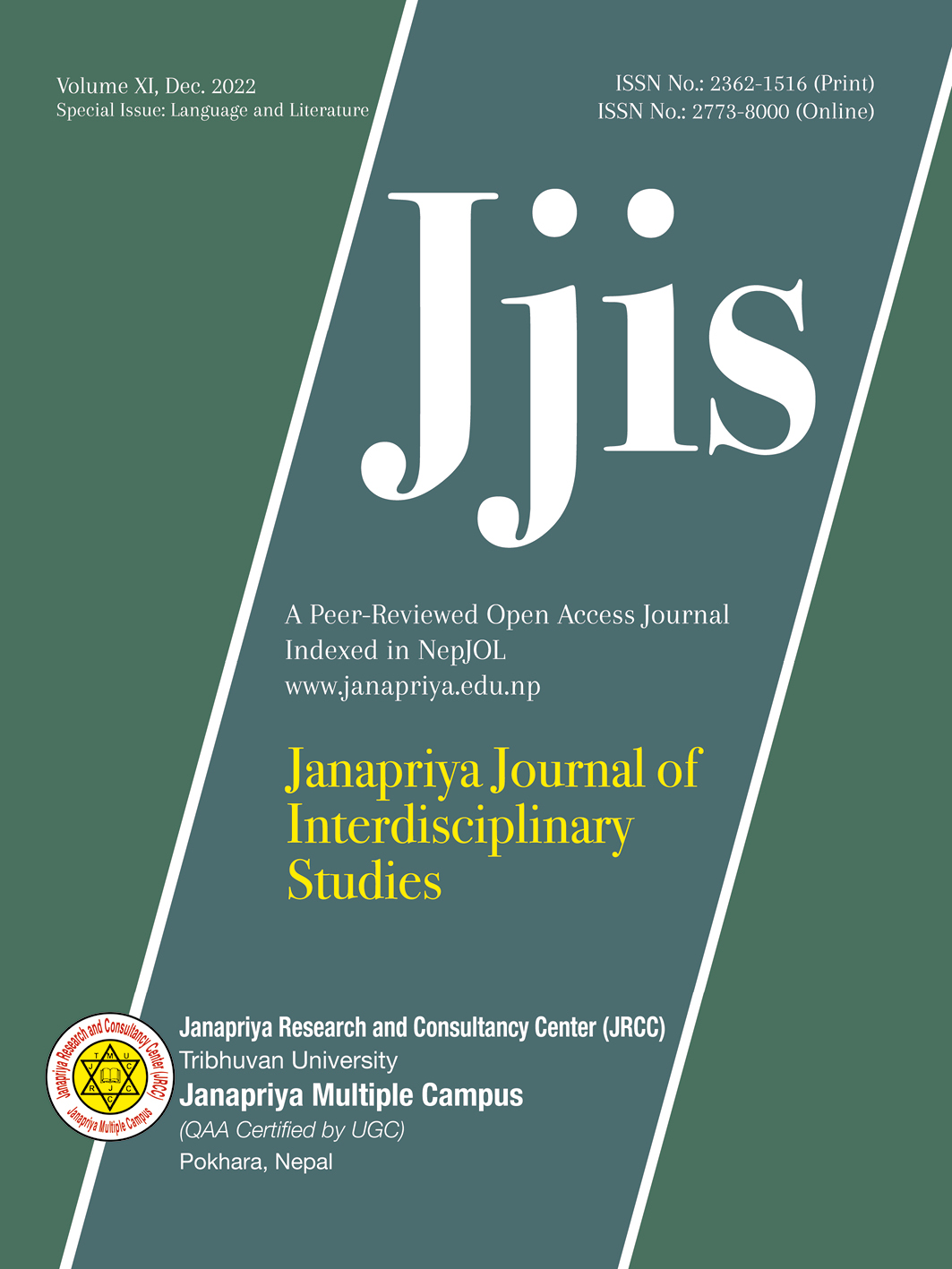Exposition of Karuna Rasa (Sentiment of Pathos) in William Shakespeare’s Macbeth
DOI:
https://doi.org/10.3126/jjis.v11i1.53911Keywords:
aesthetic pleasure, emotion, karuna rasa, pathetic sentiment, rasa theoryAbstract
Rasa theory is an Eastern literary theory. Rasa realization in the works produces pleasure and conveys themes and ideas. This study has explored karuna rasa (pathetic sentiment) experience in Shakespeare’s Macbeth. This study used a textual analysis method to expose karuna rasa. The finding of the study is that karuna rasa is identified angi (major) rasa in Macbeth. The karuna rasa (pathetic emotional forces) help to heighten sentiment of tragic feelings in Macbeth. The emotion of sorrow produces the rasa of pathos in the literary texts. The depiction and realization of karuna rasa (pathetic sentiment) upraises the grandeur of the play. Understanding rasa formation and rasa realization in the play make lively existence of the play Macbeth. Karuna rasa has elevated the state of being liked and enjoyed of Macbeth. The play represents human emotions and messages to audience.




